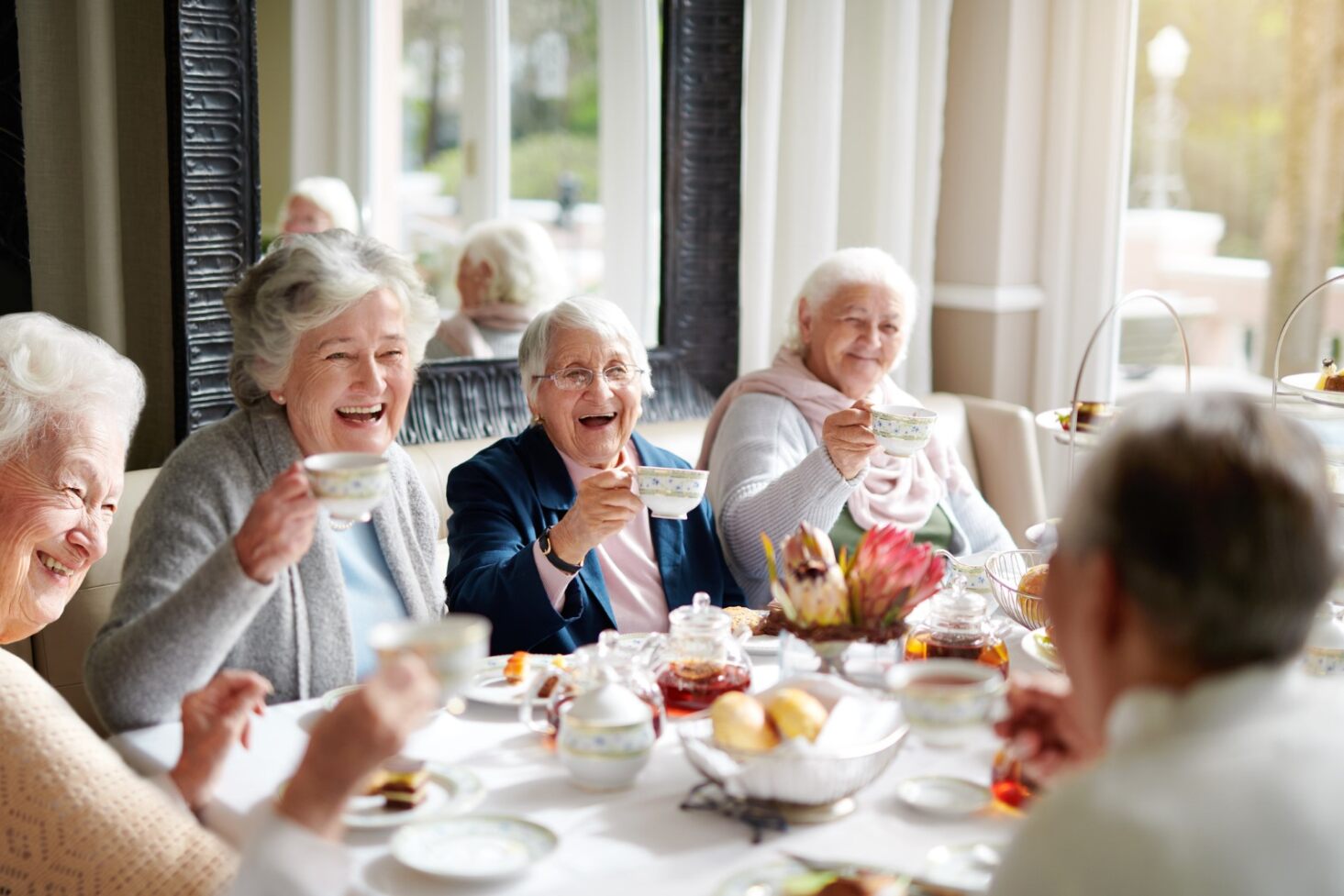Keeping It Social
May 9, 2024 | Health & Wellness, Kline Galland Home, Mary Schwartz Summit

How social engagement can enhance your mental health

Mental Health Awareness Month is a keen reminder that mental well-being is as important as physical health for aging well. Many people mistakenly believe that depression, anxiety, or other similar issues are just part of growing older, but they aren’t. They are serious health conditions which require attention and care; medical treatments like psychotherapy and prescriptions may help. But there is also a simple action that has tremendous benefits and isn’t medical at all: social engagement.
The Power of Social Connections
Human beings are social by nature and when people are socially connected, they are more likely to have better mental and physical health. For older adults in particular, the benefits of social interaction are well-documented and profound. Research has shown that seniors with frequent social contact have 70% less cognitive decline than those with low social activity. Engaging with friends and family can also support better and deeper sleep, sharper cognitive function, stronger immunity, positive moods, a sense of purpose, and overall higher quality of life. Social isolation, on the other hand, can lead to a higher risk for cardiovascular disease, stroke, loneliness, and depression.
Staying Socially Engaged After 50
So, how can we help our loved ones and ourselves keep socially active? As we grow older, life changes such as retirement, the passing of friends and family, and physical health issues can make maintaining social connections challenging. However, with intention and creativity, staying engaged isn’t just possible; it can become one of the most fulfilling aspects of later life. Here are a few ways to keep socially active and mentally sharp:
- Join clubs or groups. Engaging in hobbies or interests can be a great way to meet new people and maintain an active social life. Whether it’s a book club, a gardening group, or a walking club, these social structures support interaction and shared experiences.
- Volunteer. Offering time can provide a strong sense of purpose as well as identify a like-minded community. Plus, research on volunteering older adults found that 88% reported a decrease in feelings of isolation and 71% reported improved companionship.
- Continue education. Many community colleges and universities offer classes specifically designed for seniors. These courses are not only a way to keep the mind sharp but also a wonderful opportunity to meet people with similar interests.
- Embrace technology. Digital tools can help bridge the gap between friends and family members who may not be physically close. Participating in video calls like Zoom or joining online forums can foster a sense of belonging as well as maintain communication with friends and family.
- Attend local events. Community calendars often post information on performances, exhibits, local talks, and other events. These are great places to meet people and engage with your community on a deeper level.
- Live in a senior community. One of the benefits of residing in senior living is the on-going calendar of social activities. For example, at Kline Galland there are a wide range of culturally relevant activities for every taste, from religious services to live music and visiting pets.
By prioritizing social engagement, seniors can enjoy a richer, more fulfilling community life. By keeping it social, we can support everyone’s mental health.
###
Sources: CDC; Greater Good; Mass General Bringham; Harvard Health; NIA; AARP


